Tourism management means organizing, planning, and overseeing tourism activities to create positive experiences and sustainable growth. You play a key role in this process if you work in travel, hospitality, or destination development. Effective tourism management matters because:
- Tourism supports one in 11 jobs worldwide and contributed US$7.7 trillion to the global economy in 2022.
- Community involvement shapes visitor experiences and drives local business success in Malaysia.
- Data-driven systems, such as Tourism Management Information Systems, help balance economic benefits with environmental and social preservation.
You see the impact of tourism management in how destinations thrive, communities benefit, and travelers enjoy meaningful journeys in Malaysia.
Key Takeaways
- Tourism management plans and organizes travel activities to create great experiences and support local communities.
- Using digital tools and data helps improve services, personalize trips, and make smart decisions in tourism.
- Sustainability is key to protecting the environment, culture, and economy while growing tourism.
- Working with local people and businesses in Malaysia leads to better tourism outcomes and stronger communities.
- A career in tourism management offers many opportunities to help destinations thrive and travelers enjoy meaningful journeys.
Tourism Management Overview
What Is Tourism Management?

You shape the future of destinations when you engage in tourism management. This field involves planning, organizing, and overseeing tourism activities to ensure positive outcomes for travelers, businesses, and communities in Malaysia. You coordinate resources, design visitor experiences, and manage the impacts of tourism on local economies and environments.
Tourism management connects closely with hospitality and tourism management. Hospitality provides the essential services—accommodation, food, and guest care—that support tourism. In turn, tourism drives demand for hospitality businesses in Malaysia. You see this interdependence in every successful destination, where seamless service and memorable experiences attract visitors and encourage repeat travel in Malaysia.
Today, digital transformation is changing how you approach tourism management. Technologies like artificial intelligence, the Internet of Things, augmented reality, and service robots now enhance customer experiences and streamline operations. You can use data analytics tools such as Python or R to understand traveler preferences and improve service delivery. The rise of smart tourism means you can personalize journeys, optimize resources, and respond quickly to changing trends in Malaysia.
Note: The COVID-19 pandemic accelerated the adoption of innovative technologies in tourism management. You now rely on digital tools to support recovery, improve safety, and create new business models in Malaysia.
You also face challenges in integrating diverse data sources and ensuring data quality. Big Data, with its volume and variety, requires advanced processing and governance. By leveraging AI and cloud computing, you can analyze real-time information, offer personalized recommendations, and foster innovation in the tourism sector. These advancements help you make strategic decisions and deliver exceptional experiences in Malaysia.
Core Functions
You perform several core functions in tourism management that drive success for destinations and the broader hospitality and tourism management industry in Malaysia. These functions include:
- Strategic Planning: You set goals, allocate resources, and develop policies that guide tourism growth and sustainability.
- Product Development: You design and refine tourism products, such as tours, attractions, and events, to meet market demands.
- Marketing and Promotion: You use data-driven strategies to attract visitors, build destination brands, and manage customer relationships.
- Operations Management: You oversee daily activities, coordinate with hospitality providers, and ensure service quality.
- Sustainability Management: You balance economic benefits with environmental protection and social responsibility.
- Stakeholder Engagement: You collaborate with local communities, businesses, and government agencies in Malaysia to align interests and share benefits.
- Performance Measurement: You track key indicators to evaluate success and guide improvements.
You can see the effectiveness of these functions through real-world performance indicators. For example, you might use a 360-degree assessment to gather feedback from leaders, colleagues, and tourists. Key performance indicators (KPIs) help you measure job creation, business viability, water quality, waste management, and energy conservation. You also monitor social and cultural impacts, such as quality of life and community integrity.
| Sustainability Dimension | Key Performance Indicator Themes |
|---|---|
| Economic | Job creation, Business viability |
| Environmental | Water quality, Waste management, Energy conservation |
| Social | Quality of life, Community integrity |
| Cultural | Cultural sustainability |
You also track destination performance using metrics like international tourist attraction capacity, tourism chain performance, destination image, holiday experience, and hotel occupancy. These indicators help you understand how well you attract and satisfy tourists in Malaysia, maintain infrastructure, and support the tourism ecosystem.
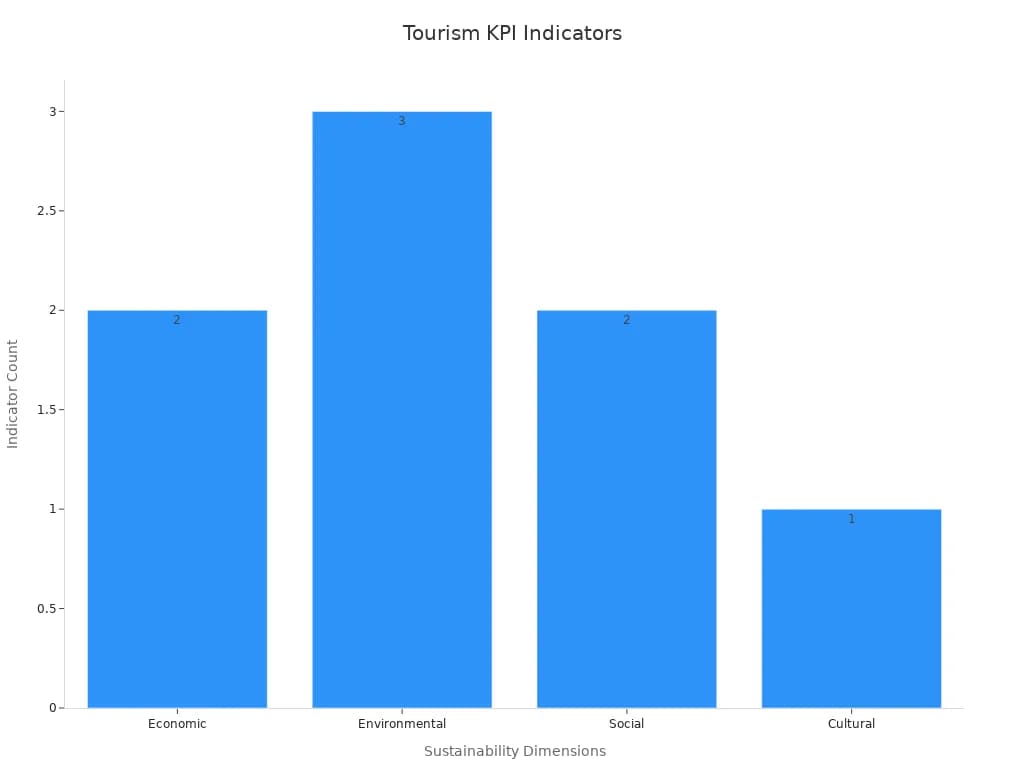
In hospitality and tourism management, you rely on both quantitative and qualitative research to guide your decisions. Most studies use statistical methods or interviews to analyze customer behavior and service quality in Malaysia. You can apply AI and data analytics to extract patterns, predict tourist needs, and personalize services. Big Data enhances your marketing strategies by helping you understand consumer behavior through social media and other digital channels.
Tip: Managers in hospitality and tourism management should embrace digital innovation to create personalized, convenient experiences while addressing data privacy concerns.
You play a vital role in shaping the future of tourism in Malaysia. By mastering these core functions, you ensure that destinations remain competitive, sustainable, and attractive for travelers worldwide.
Key Areas in Hospitality and Tourism Management in Malaysia
Product Analysis and Design
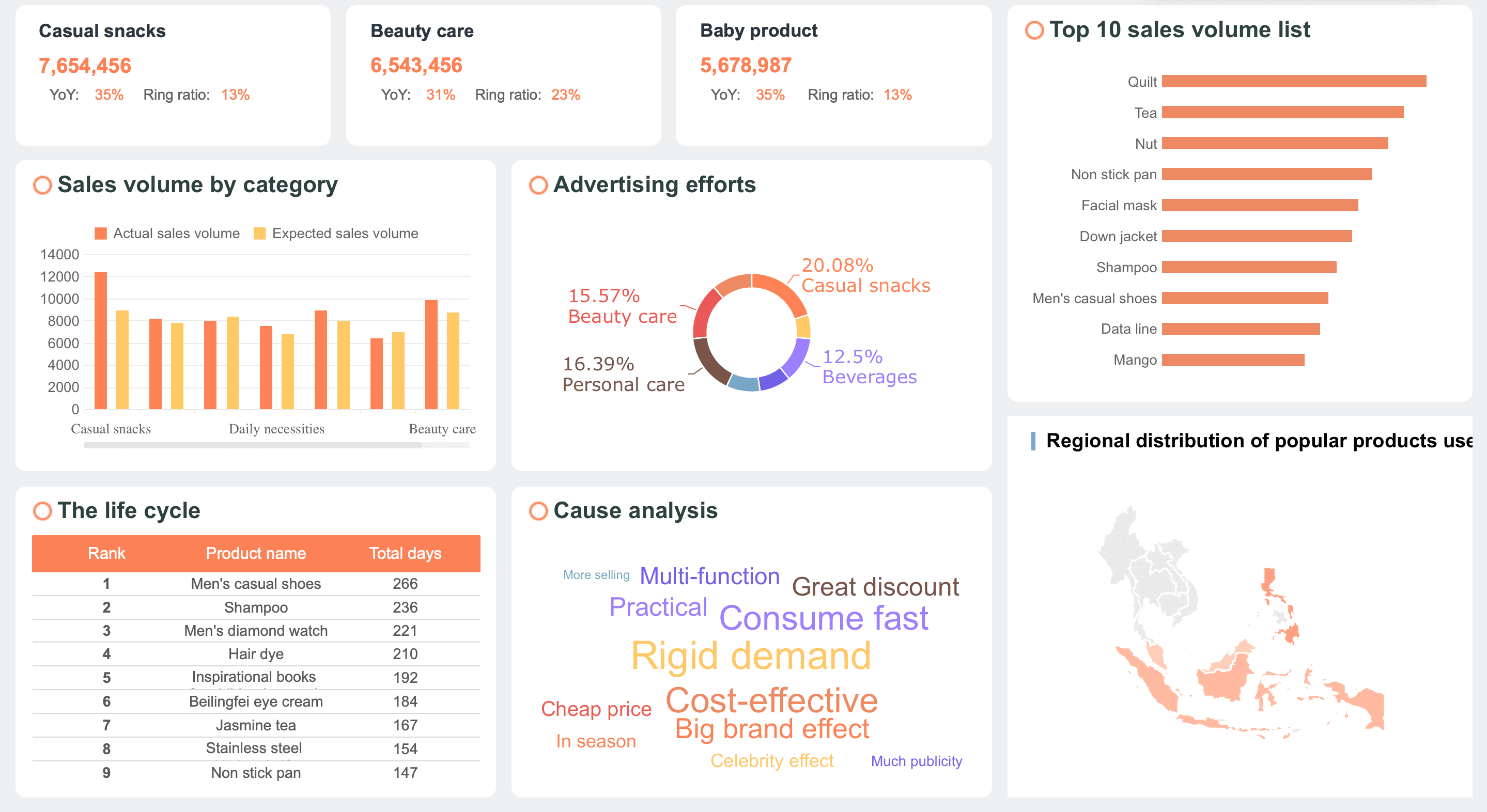
You drive innovation in hospitality and tourism management by analyzing and designing products that meet evolving traveler needs in Malaysia. The expansion of digital technologies after COVID-19 has transformed how you create and deliver experiences. You now use digital tools to personalize tourism products, such as customized digital souvenirs, and to co-design offerings with customers in Malaysia. These advances foster engagement, support sustainable cultural tourism, and promote social inclusion. Digital transformation also enables you to adopt new standards and restructure tourism spaces for better visitor satisfaction.
- Technological expansion supports recovery and redesigns experiences.
- Digital co-design and ICT adoption improve customer experience.
- Digital systems foster sustainable development and partnerships.
Planning and Development
You play a central role in planning and developing tourism destinations. Data-driven tools like FineReport help you analyze visitor flows, forecast demand, and optimize resource allocation in Malaysia. You can visualize trends, identify opportunities, and make informed decisions that shape the future of the hospitality industry. Digital platforms streamline project management, ensuring that you align development with market needs and sustainability goals.
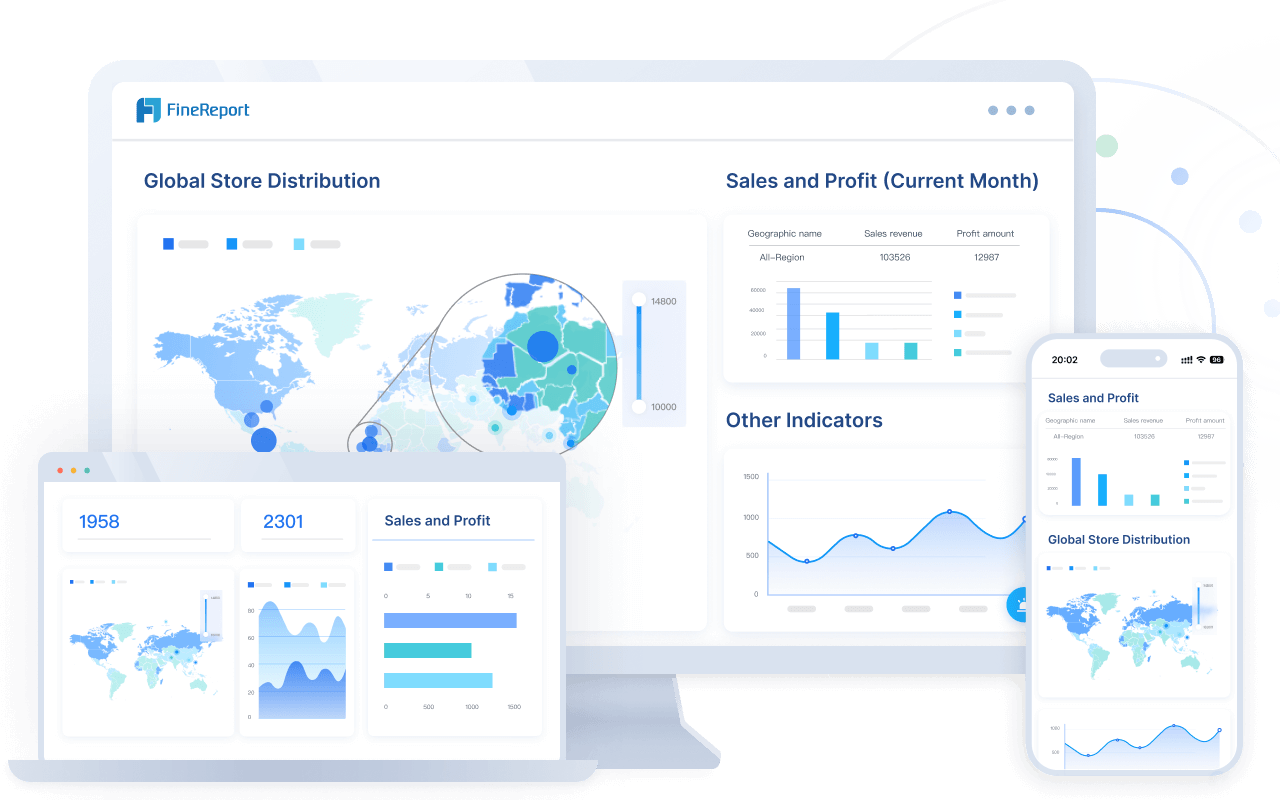
Marketing and Promotion
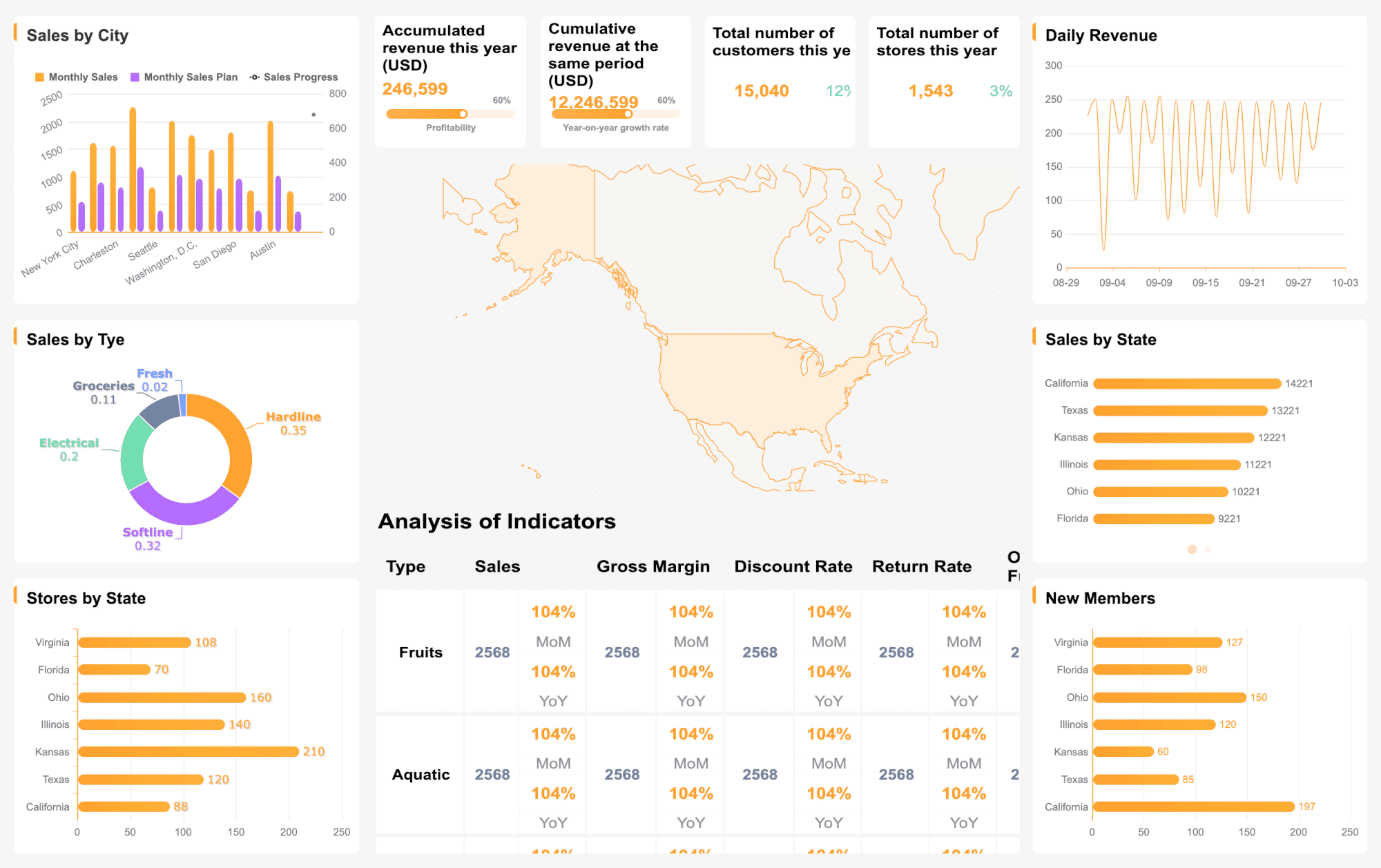
You enhance marketing and promotion in hospitality and tourism management by leveraging digital analytics. FineReport enables you to track key performance indicators, such as website traffic, social media engagement, and conversion rates. These metrics help you refine campaigns and target the right audiences in Malaysia. You can segment visitors, personalize messages, and forecast demand to maximize revenue. Real-world examples, like Tourism Australia’s data-driven campaigns, show how analytics boost arrivals and business growth in Malaysia.
- Digital advertising generates measurable KPIs.
- Visitor segmentation and trend prediction improve targeting.
- Advertising and personal selling significantly increase marketing performance.
Sustainability Practices
You integrate sustainable practices into every aspect of tourism management. The European Tourism Indicators System (ETIS) helps you monitor environmental, social, and economic impacts. You track carbon footprints, biodiversity, and community well-being using real-time dashboards. These indicators guide you in balancing economic growth with conservation and social responsibility, ensuring long-term success for the tourism sector.
Tourism Data Monitoring
You rely on robust data monitoring to optimize operations in hospitality and tourism management. FineReport supports you by collecting and analyzing booking data, transaction records, customer feedback, and geospatial information. You use these insights to adjust airline routes, manage hotel occupancy, and respond to disruptions. Digital analytics tools, such as social media platforms and revenue management systems, help you predict trends and improve decision-making.
- Booking, transaction, and behavioral data inform strategy.
- Surveys and trend analysis forecast demand.
- AI-driven tools and big data uncover customer patterns.
Here is an data monitoring dashboard created by FineReport, click to experience it.
Stakeholder Engagement
You achieve better outcomes in hospitality and tourism management by engaging stakeholders. Iterative assessments and feedback loops lead to measurable improvements in social and environmental performance. Accommodation providers, local communities, and value chain actors benefit from proactive engagement, which drives innovation and sustainability. By involving stakeholders in planning and monitoring, you foster partnerships that enhance competitiveness and community welfare.
Tip: Use digital reporting platforms like FineReport to facilitate transparent communication and continuous improvement among stakeholders.
Importance of Tourism Management
Economic Impact
You drive economic growth when you focus on destination management. By integrating tourism, culture, infrastructure, and sustainability, you enhance visitor satisfaction and boost local economies. Effective destination management increases the length of stay, visitor return rates, and overall revenue. For example:
- You see countries that invest in destination management achieve higher visitor retention, even as global averages decline.
- Collaboration with stakeholders and local communities leads to long-term economic resilience.
- Data-driven strategies help you identify trends and optimize resource allocation.
A recent study compared 32 global destinations and found that while the global length of stay dropped by nearly 15%, some destinations increased their average, showing the power of strong destination management. You can also examine the factors that affect tourism’s contribution to GDP:
| Factor Affecting Tourism's Contribution to GDP | Marginal Effect (dy/dx) | Significance (P-value) |
|---|---|---|
| Enabling environment | +31.055 | 0.007 (significant) |
| Airport infrastructure | +9.296 | 0.002 (significant) |
| Human resources (labour market) | -22.332 | 0.001 (significant negative) |
| General infrastructure | -14.272 | 0.001 (significant negative) |
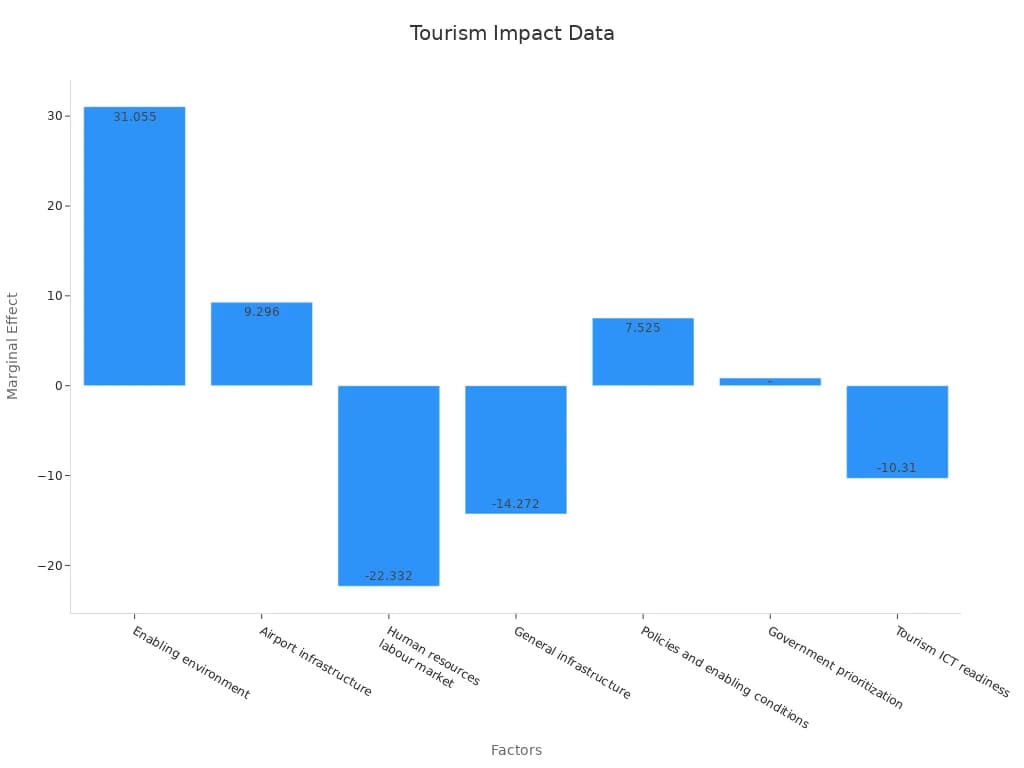
You can use FineReport to analyze these metrics, track economic trends, and make informed decisions that strengthen your destination’s position in the tourism sector.
Social and Cultural Value
You shape the social and cultural landscape of a destination through thoughtful destination management. Your efforts create jobs, support local artisans, and preserve heritage sites. Consider these examples:
- Community-based tourism projects generate employment for locals.
- Cultural festivals and education programs promote local pride and enrich visitor experiences.
- Policies like Bhutan’s “High Value, Low Impact” approach regulate visitor numbers and fund cultural preservation.
- Visitor caps at sites like Angkor Wat and Cinque Terre protect cultural assets and landscapes.
You measure success through visitor satisfaction surveys and economic benefits to local communities. By supporting local traditions and crafts, you ensure that the destination’s unique identity thrives.
Environmental Stewardship
You play a crucial role in protecting the environment through destination management. A Destination Management Plan helps you guide visitor flows and development, maximizing positive impacts while minimizing harm. You benchmark sustainability strategies across cities, lead community engagement, and use data-driven tools to monitor green areas, pollution, and air quality.
Tip: Use FineReport to collect and analyze real-time environmental data, set sustainability KPIs, and communicate progress to stakeholders.
You respond to the growing demand for sustainable travel by adapting your strategies. Continuous measurement and transparent reporting allow you to balance economic, community, and environmental values. By integrating sustainable practices, you ensure your destination remains attractive and resilient for future generations.
Tourism Management vs. Related Fields
Hospitality and Tourism Management Differences
You may wonder how hospitality and tourism management differ, especially if you are considering a diploma in hospitality and tourism management. Both fields prepare you for a rewarding career in the travel and leisure industry, but each has a unique focus. Hospitality centers on providing excellent service in hotels, resorts, and restaurants. You learn about customer service, food and beverage operations, and managing accommodation. In contrast, tourism management covers a broader range of activities, including travel guiding, tour operations, and destination marketing.
The following table highlights the main differences between these fields:
| Parameter | Hospitality Management | Tourism Management |
|---|---|---|
| Focus | Prepares students mainly for accommodation and catering sectors. | Covers all activities related to tourism, including travel guiding and tourist representation. |
| Subjects | Customer service, hospitality industry, management development, small business in Malaysia, food & beverage operations. | Travel and tourism sector, tour operations, sustainable tourism, travel agency management, travel marketing. |
| Activities | Managing accommodation and food & beverage needs in hotels, resorts, motels. | Ticketing, guiding tourists, managing travel arrangements. |
| Category | Considered a sub-category within tourism management. | Viewed as a broader field that includes hospitality management as a part. |
If you pursue a diploma in hospitality and tourism management, you gain skills for both sectors, opening doors to a wide range of career opportunities.
Overlaps and Distinctions
You will notice that hospitality and tourism management often overlap with other fields. Industry research shows that these areas connect with marketing, information technology, and sustainability. You use digital tools to analyze customer satisfaction, manage online reviews, and apply big data analytics. These skills help you succeed in a modern career.
At the same time, each field has its own focus. Hospitality and tourism management emphasizes customer experience, economic performance, and destination management. The hospitality industry deals with service delivery in hotels and restaurants, while tourism management includes travel agencies, airlines, and tour operators. The travel and leisure industry is complex, with many sectors working together. You benefit from understanding these distinctions as you plan your program and career path.
Note: Experts argue that there is not just one tourism industry. Instead, you see many industries that overlap and interact, such as airlines, travel agencies, and hospitality. This diversity shapes your career options and the strategies you use in your work.
You shape the future of every destination when you invest in your education and skills. A diploma in hospitality and tourism management opens doors to a rewarding career, letting you improve communities and support local economies. Studies in Sarawak and Naples show that strong destination management leads to better planning and real benefits for both visitors and residents.
| Study Aspect | Details |
|---|---|
| Location | Sarawak, Malaysia |
| Key Outcome | Rural tourism competency index for planning |
| Practical Benefit | Guides policy and supports rural development |
| Study Aspect | Details |
|---|---|
| Location | Naples, Italy |
| Key Outcome | Metrics for destination performance |
| Practical Benefit | Helps managers improve tourism experiences |
You can use digital tools like FineReport to analyze data, enhance hospitality, and build a successful career. Explore more about this program and discover how you can make a difference in the tourism industry.
Click the banner below to try FineReport for free and empower your enterprise to transform data into productivity!
Continue Reading About Tourism Management
FAQ

The Author
Lewis
Senior Data Analyst at FanRuan
Related Articles

What is a data management platform in 2025
A data management platform in 2025 centralizes, organizes, and activates business data, enabling smarter decisions and real-time insights across industries.
Howard
Dec 22, 2025

Top 10 Database Management Tools for 2025
See the top 10 database management tools for 2025, comparing features, security, and scalability to help you choose the right solution for your business.
Howard
Dec 17, 2025

Best Data Lake Vendors For Enterprise Needs
Compare top data lake vendors for enterprise needs. See which platforms offer the best scalability, integration, and security for your business.
Howard
Dec 07, 2025




